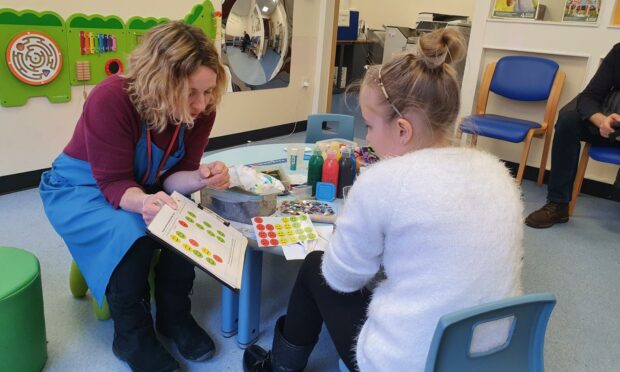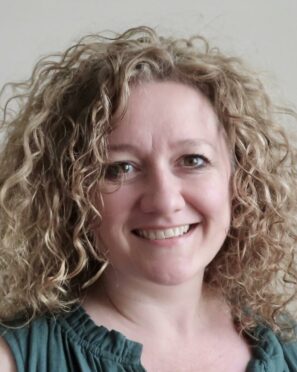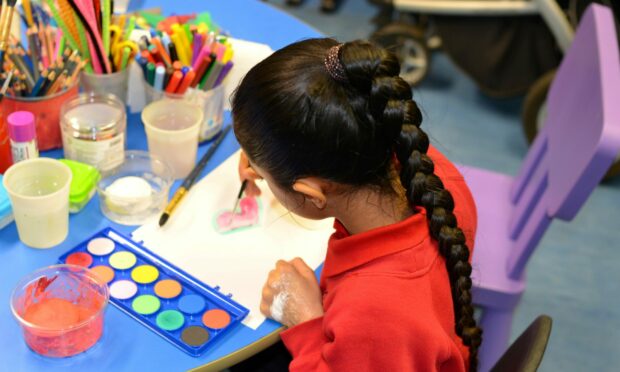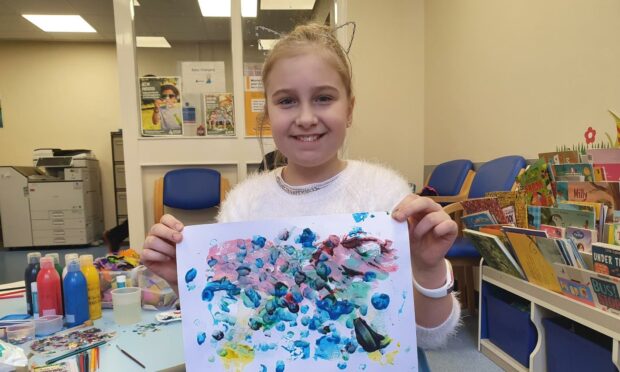For children and young people living with the pain of chronic and physical illness, a feeling of being “invisible” adds to their burden, writes Sarah Randell, chief executive of Teapot Trust.
As their disability often has no obvious outward sign, they tend to suffer in silence, typically reluctant to talk about their condition for fear of not being understood or even believed.
Too frequently, others respond “Well, you look fine.”
If a child is already feeling the mental health impact of a painful condition, comments like this can add to their sense of isolation.
Sadly, statistics reveal that a significant number of children and young people at risk of self-harm and suicide ideation have a chronic, physical health condition.
This month, to improve public understanding of “invisible illness”, Teapot Trust is highlighting the experience of young patients who live with chronic and physical conditions.
Art sessions ‘powerful and transformative’
Individuals around Scotland are bravely speaking out to encourage others to access funded art therapy through the charity.
When Teapot Trust was established ten years ago, it was pioneering to introduce art tables into paediatric out-patient clinics in Scotland’s hospitals to keep children distracted and calm in between invasive tests, injections and scans.
Hospitals can be scary places for children and needle phobia is common. So, the absorbing nature of art provides an important “escape”.
Since then, Teapot’s Trust work has grown significantly. One-to-one art psychotherapy sessions run to support children who struggle to come to terms with a diagnosis or accept a course of treatment – perhaps because it has unpleasant side effects.
They are helped to explore and express their feelings, discover healthy coping tools and build resilience. It can be powerful and transformative.
Now, group sessions for those with the same or similar conditions in common enable children to see beyond themselves and develop mutually supportive friendships. Family art therapy is also offered to help families navigate their journey together.
A great sense of relief is felt by children and parents alike when art therapy gets underway and starts to achieve its goals.
Lives moving ‘from black and white into colour’
Young people have described their lives moving from black and white into colour with help to understand feelings that had been bottled up for a long time.
Parents speak of the helplessness they felt at seeing their child disappear in a downward spiral of anxiety and depression, made worse by long waiting times for services that proved ineffective, before finally being referred to art therapy.
In Royal Aberdeen Children’s Hospital, Teapot Trust usually provides one-to-one art therapy and an art table in paediatric out-patient clinics.
This had to be paused during the pandemic due to the children’s weakened immunity to Covid-19 and the risk of cross-infection but support continues online via video conferencing.
In partnership with Raigmore Hospital in Inverness, the charity piloted new work during the pandemic – developing both online small groups and family art therapy which have been rolled out widely so that many other children, young people and families can benefit.
The use of online art therapy has enabled many children and young people who live in remote locations to access a service they rely on without the need for time-consuming travel.
Sarah Randell is chief executive of Teapot Trust, a registered Scottish charity at the forefront of mental health support for young patients living with chronic and physical conditions.
The charity uses art therapy and creative interventions to meet needs, working in hospitals, communities and online. Self-referrals from families are welcomed.



